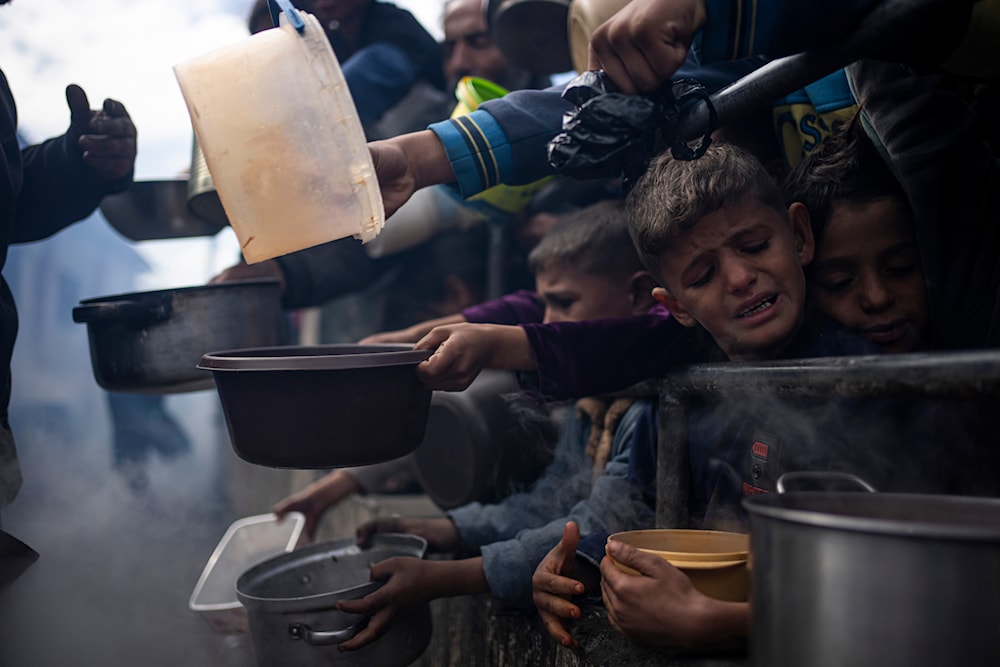Algeria, South Africa come together against 'Israel' in ICJ cases
The foreign ministers of both nations reiterate the significance of both legal and diplomatic channels to achieve the above-mentioned goals.
-

Palestinians line up in Rafah, Gaza on Friday, Feb. 16, 2024. (AP)
During a meeting between Algerian Foreign Minister Ahmed Attaf and his South African counterpart, Naledi Pandor, in Addis Ababa on Friday, both nations affirmed their pledge to increase pressure to enforce the measures set by the International Court of Justice aimed at "Israel" and its genocide campaign in Gaza.
On the sidelines of the 44th regular session of the African Union's Executive Council, the African nations focused on the war and genocide in Gaza during their discussions, in addition to the need for ending the aggression, protecting civilians, and ensuring the flow of humanitarian aid.
The foreign ministers also reiterated the significance of both legal and diplomatic channels in the course of achieving the above-mentioned goals.
The key objectives set were an end to the Israeli military invasion in Gaza, protection of Palestinian civilians, free flow of humanitarian aid, and a lasting resolution to the struggle based on international law.
Back to square one
Just days ago, the South African government announced that it had appealed to the ICJ seeking its intervention to assess whether the potential Israeli offensive in Rafah warranted the court's use of its authority to prevent additional violations of Palestinians' rights.
Read more: ICJ ruling on Gaza 'decisive victory for int'l rule of law': S. Africa
"Israel" is considering extending its ground invasion into the city of Rafah, where more than 1 million Palestinians have been forcibly displaced to the region that "Tel Aviv" claimed would be "safe", which have resulted in an international backlash.
According to South Africa, this is enough to ask the ICJ to revisit its provisional measures and issue a sterner order.
It said it was "gravely concerned that the unprecedented military offensive against Rafah," which "has already led to and will result in further large scale killing, harm and destruction."
"This would be in serious and irreparable breach both of the Genocide Convention and of the Court's Order of 26 January 2024," the South African presidency argued.
Algeria has previously expressed hard support for South Africa's case at the ICJ.

 2 Min Read
2 Min Read








